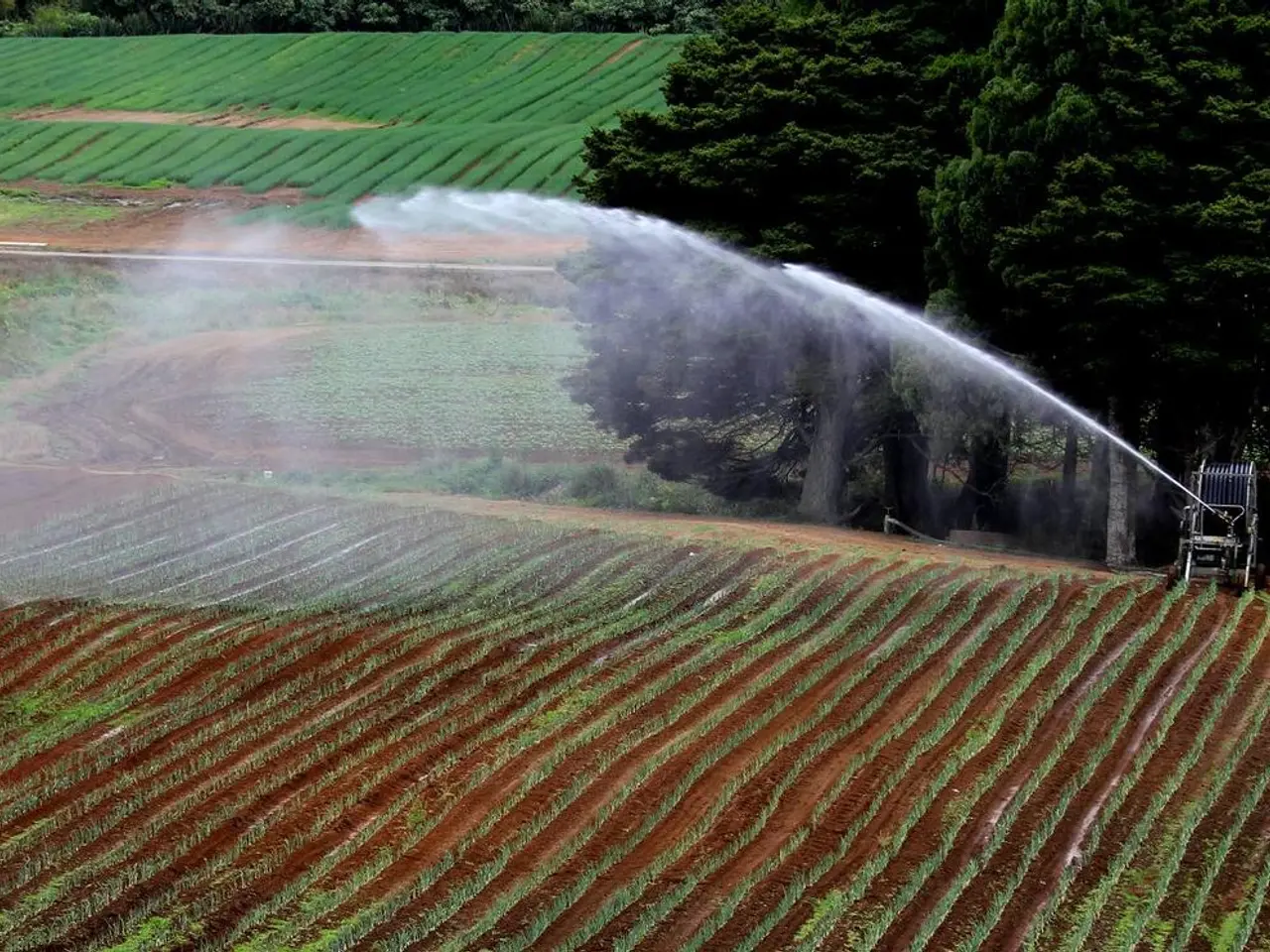Luxury Steel Manufacturer Aamor Inox Buys Premium Delhi Farmland for 87.5 Crores INR
In a notable move, Aamor Inox, an industrial tools and equipment manufacturer, has purchased prime farmland on the outskirts of Delhi for ₹87.5 crore on September 4, 2024. This acquisition, located near the capital, has significant implications for the region's economic and social dynamics.
The acquired farmland, known for its potential for future development, could face repurposing for non-agricultural uses. This shift in land ownership, along with similar investments, is part of a growing trend among corporations seeking long-term growth by diversifying their assets. However, the specific plans for the farmland remain undisclosed by Aamor Inox.
The blurring lines between agriculture, industry, and urban development are becoming increasingly apparent, with corporate interests driving regulatory reassessments and better land use management policies. Potential uses for the farmland include agricultural initiatives focusing on high-value crops or organic farming, renewable energy projects such as solar or wind farms, or even expansion of Aamor Inox's industrial operations.
If the farmland is repurposed for non-agricultural uses, local farmers may face displacement, disrupting traditional farming communities and affecting the local economy. The increased corporate interest in farmland can also lead to changes in land use, urbanization, and speculation, driving land prices up and making it difficult for small farmers to compete or expand.
On the positive side, corporate investment could bring better infrastructure, technology, and capital to the area, potentially enhancing productivity if the land remains in agricultural use or supports agro-industrial activities. However, environmental degradation and regulatory challenges may arise if the land is not managed sustainably, or if there is legal or policy scrutiny regarding land use, zoning, and ownership rights.
The long-term implications of this acquisition hinge on Aamor Inox's intended use of the land and the regulatory environment in Delhi regarding agricultural land conversion. If the land is transformed or developed, the general implications of corporate investments in agricultural land would be relevant, including potential impact on local agriculture and livelihoods, speculation and land value appreciation, and the potential for improved infrastructure and investment.
This acquisition could set a precedent for similar investments, encouraging more foreign and domestic businesses to invest in agricultural land as part of their development plans. It is crucial to ensure that these developments benefit not only the corporations involved but also the local communities and the agricultural sector as a whole. Economic growth and job creation could result if the land is used for modern or commercial purposes, provided the needs of the local community are considered.
As we wait for Aamor Inox to reveal its plans for the farmland, it is essential to consider the potential impacts on the local agriculture, environment, and community, and to advocate for policies that prioritise sustainable development and the needs of local farmers and residents.
Read also:
- Rapid Construction of Rajasthan's 435 Megawatt Solar Power Plant in Eight Months Reduces Carbon Dioxide Emissions by Over 700,000 Tons
- Ford's Revisited Capri: A Contentious Revival for a Legendary Brand Name
- Tesla to open its second experience center in Delhi on August 11th
- Rivian is developing a steering system without direct mechanical connection, along with rear wheel guidance (latest update)






